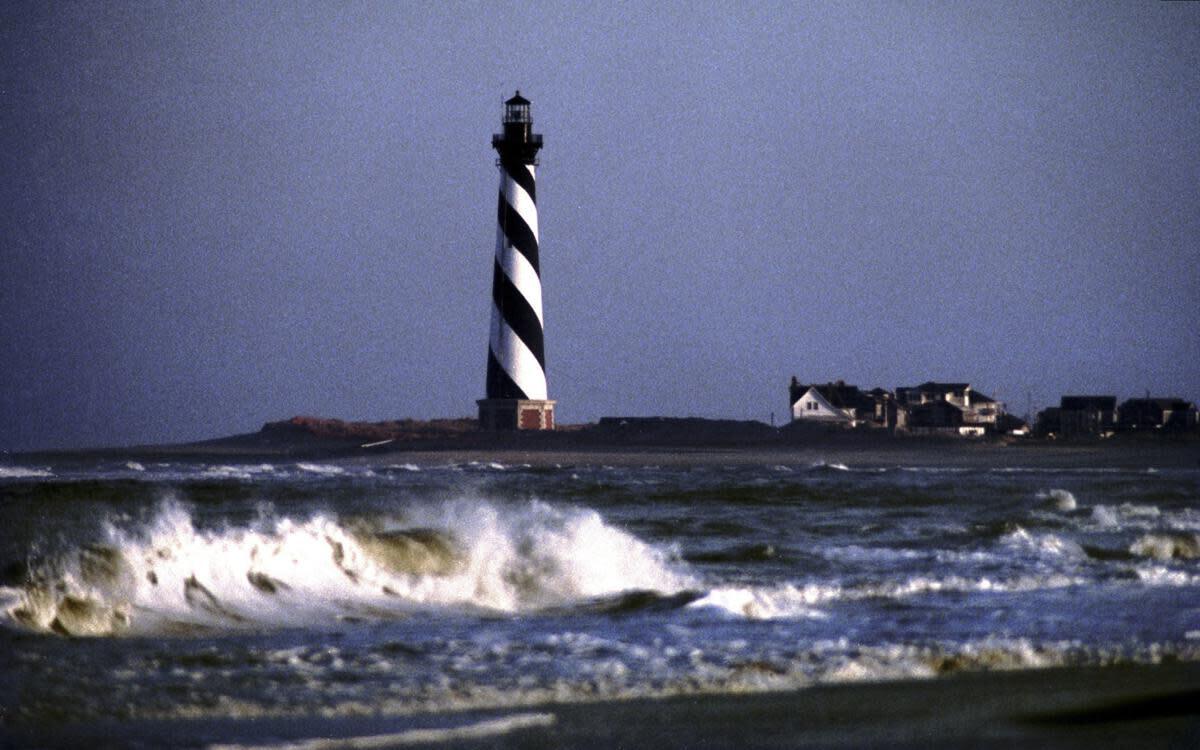The Lost Lighthouses Along America’s Atlantic Coast

Have you ever wondered about the stories behind the lost lighthouses along America’s Atlantic Coast? These towering structures once guided ships safely through treacherous waters, but many have vanished over time. Some were destroyed by storms, while others were replaced by modern technology. Yet, their tales remain, whispering secrets of the past. Imagine standing where these beacons once stood, feeling the salty breeze and hearing the distant crash of waves. Each lighthouse had its own unique story, from daring rescues to mysterious disappearances. Exploring these forgotten sites offers a glimpse into maritime history and the lives of those who depended on these guiding lights. Whether you're a history buff or just curious, the lost lighthouses hold a special place in America's coastal heritage.
The Forgotten Guardians of the Sea
Lighthouses once stood as vital navigational aids for sailors braving the treacherous waters of the Atlantic. Many have been lost to time, erosion, or neglect. Let's explore some of these forgotten sentinels along America’s eastern shores.
1. Cape Hatteras Lighthouse, North Carolina
Cape Hatteras Lighthouse, known for its iconic black and white stripes, was relocated in 1999 due to beach erosion. The original site, now underwater, reminds us of the relentless power of the sea.
2. Morris Island Lighthouse, South Carolina
Morris Island Lighthouse, standing alone in the water, was once part of a bustling island community. Erosion and storms have left it isolated, a haunting reminder of nature's force.
3. Sankaty Head Lighthouse, Massachusetts
Sankaty Head Lighthouse, perched on Nantucket Island, faced a similar fate. It was moved inland in 2007 to escape the encroaching ocean, preserving its history for future generations.
4. Cape St. George Lighthouse, Florida
Cape St. George Lighthouse, originally built in 1833, succumbed to erosion and hurricanes. Rebuilt using original materials, it stands as a testament to resilience and preservation efforts.
5. Cape Cod Light, Massachusetts
Cape Cod Light, also known as Highland Light, was relocated in 1996 due to cliff erosion. Its original location now lies perilously close to the edge, a stark contrast to its current safe haven.
6. Cape Romain Lighthouses, South Carolina
Cape Romain boasts two historic lighthouses, both now abandoned. The older of the two, built in 1827, stands as a relic of maritime history, slowly being reclaimed by nature.
7. Bodie Island Lighthouse, North Carolina
Bodie Island Lighthouse, with its distinctive horizontal stripes, was moved several times due to shifting sands. Its current location offers a glimpse into the challenges faced by coastal structures.
8. Little River Light, Maine
Little River Light, perched on a small island, was decommissioned in 1975. Though no longer guiding ships, it remains a cherished piece of history, maintained by dedicated volunteers.
9. Cape Lookout Lighthouse, North Carolina
Cape Lookout Lighthouse, with its diamond pattern, has weathered many storms. Its original site, now submerged, speaks to the ever-changing landscape of the Outer Banks.
10. Hunting Island Lighthouse, South Carolina
Hunting Island Lighthouse, once a beacon for mariners, was moved inland in 1889. The original site, now lost to the sea, highlights the ongoing battle between land and water.
Reflecting on Coastal Guardians
Lighthouses along America’s Atlantic Coast hold stories of maritime history and human resilience. These coastal guardians once guided sailors through treacherous waters, ensuring safe passage. Today, many stand as reminders of a bygone era, their lights dimmed but their significance undiminished.
Exploring these structures offers a glimpse into the past, where each lighthouse has its own tale of storms weathered and lives saved. From Maine's rocky shores to Florida's sandy beaches, these beacons have witnessed countless sunrises and sunsets, standing tall against the elements.
Preservation efforts continue to keep their legacy alive, allowing future generations to appreciate their architectural beauty and historical importance. Visiting these sites not only connects us to maritime heritage but also highlights the importance of safeguarding our coastal landmarks. As you travel the Atlantic Coast, take a moment to appreciate these silent sentinels and the stories they silently tell.

